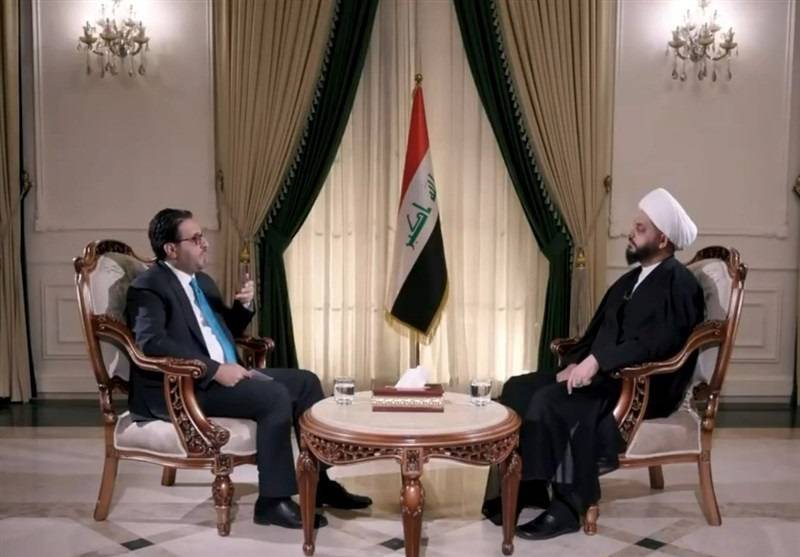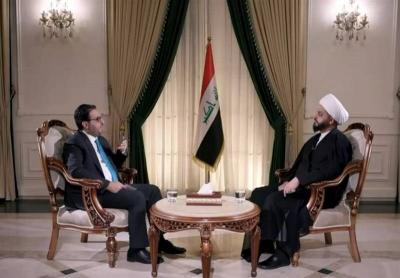The Secretary-General of Asa'ib Ahl al-Haq movement, Sheikh Qais Khazali, affirmed his rejection of the presence of American forces in Iraq, as they came illegally and contrary to the Iraqi constitution and law. He emphasized the importance of military resistance alongside diplomatic negotiation to expel those forces.
In a televised interview, Sheikh Khazali stated that Asa'ib Ahl al-Haq believes in two strategies. The first is state-building, with their participation after 2021 being clear and sending very good signals regarding government formation, the selection of the Prime Minister, the Minister of Higher Education, and the Governor of Babylon. He indicated that the second strategy is the necessity of resistance but in a controlled manner that does not undermine the government or weaken the state.
He added that the forces present illegally, against the constitution and Iraqi law, cannot be accepted due to his experiences and many other experiences. According to him, American forces cannot leave the country solely through diplomatic negotiation without backed military resistance. Khazali considered the existence of resistance as a duty to compel American forces to withdraw and achieve complete sovereignty for the country.
He noted that the resistance began in 2003 and 2004, leading to the American departure at the end of 2011, and that the resistance did not embarrass Prime Minister Nouri al-Maliki during his two terms. Sheikh Khazali regarded the presence of resistance as essential for achieving sovereignty in the near to medium future and stressed that they are part of the resistance axis, especially in light of regional conflict expansion in Lebanon or Yemen.
He asserted that the ongoing conflict between the resistance in Lebanon, Yemen, and Iraq against the Zionist entity is not over, and there is an ongoing battle that has not concluded, stressing the importance of the final outcome. He explained that the current situation involves psychological warfare, economic issues, social problems, and anxiety for Israel, with daily expectations of strikes.
Khazali pointed out that the psychological anxiety is part of the battle and part of the response, with a belief that there will be an official clear response from the Islamic Republic regarding the assassination of martyr leader Ismail Haniyeh, as well as a clear response from Hezbollah regarding the assassination of leader Fouad Shukr and from the Houthis regarding the recent aggression in Yemen. He emphasized that support for the Iraqi resistance for Gaza will continue, and the outcomes will define who is winning the current war, which belongs to the resistance axis.
Khazali revealed that Netanyahu has set three goals: to eliminate Hamas, to recover prisoners by force rather than negotiations, and to ensure Gaza does not pose a threat to the Israeli entity in the future. He noted that the sponsoring countries of the Zionist entity advocate for human rights and consider it the moral army in the region. He warned that if Netanyahu's three goals are not achieved, it will mean that those who prevented these objectives are the true victors, which is an inevitable and certain result.
He added that in any war leading to the destruction of cities, buildings, and resulting in casualties, victory or loss should not be measured by the number of dead on either side but by the achievement of the objectives that led to the war. He affirmed that the strategic objective has been achieved in the war, and other parties are in the process of achieving theirs, indicating that Netanyahu will not be able to accomplish his goals.




